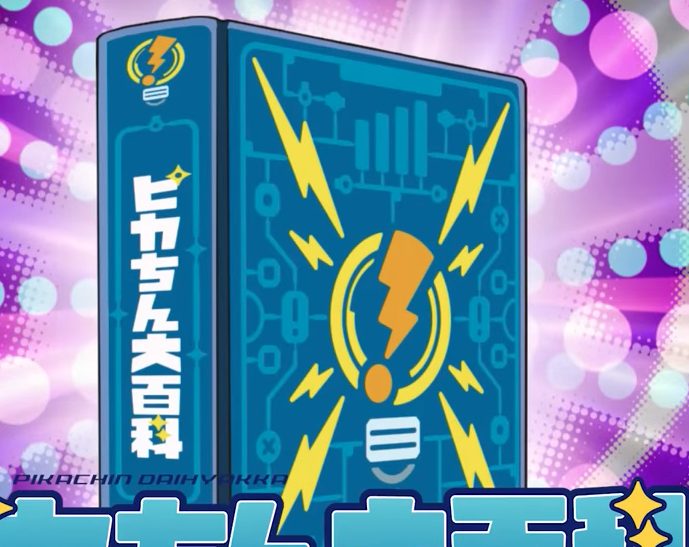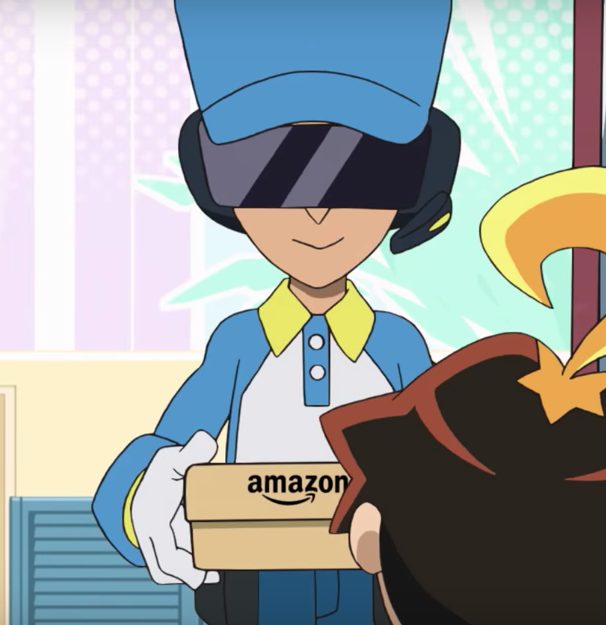Companies using anime to market products isn’t a new trend. Japan’s dedication to cute mascots, anime collaborations, and crossovers is the stuff of legends. Ads from companies like Nissin Ramen deliver a healthy dose of nostalgia by referencing classics such as Kiki’s Delivery Service and Sazae-san. But while corporations like Nissin Ramen manage to advertise in a way that lets you associate their product with positive events and emotions (your favorite anime, getting your first job, having a crush, etc.), Amazon has decided to take this approach the only way they know how: a complete inundation of the market.
Enter Pikachin-Kit. Produced by Bandai with production cooperation from Amazon, the series follows a young boy named Eiji, who finds a book called the “Pikachin Research Book.” While the word looks familiar, the series claims that the word is an onomatopoeia for the “flash of inspiration one gets about a new project,” though the book’s symbol looks very familiar.

Flipping through the book gives Eiji a number of projects to choose from, and as soon as he does, a deliveryman appears with the project kit in hand. Three guesses as to where that product comes from.

It would be fine if Bandai created this anime to only sell toys. The West has a fine tradition of cartoons being made to push toy lines, like He-Man and My Little Pony. However, Pikachin-Kit‘s main job seems to be to teach children how to order items from Amazon under the guise of creativity and invention.
Now Bandai has no illusions about this whatsoever. The concept of the show is stated to be that “invention is 99% plastic models, 1% inspiration.” But when we factor in that this series has an anime, live-action variety show, video games, countless toys, and is yet somehow co-produced by one of the world’s largest e-commerce platforms, it stands to believe that something suspect might be going on. That something is most likely meant to be a tighter hold on Japan’s e-commerce market.














